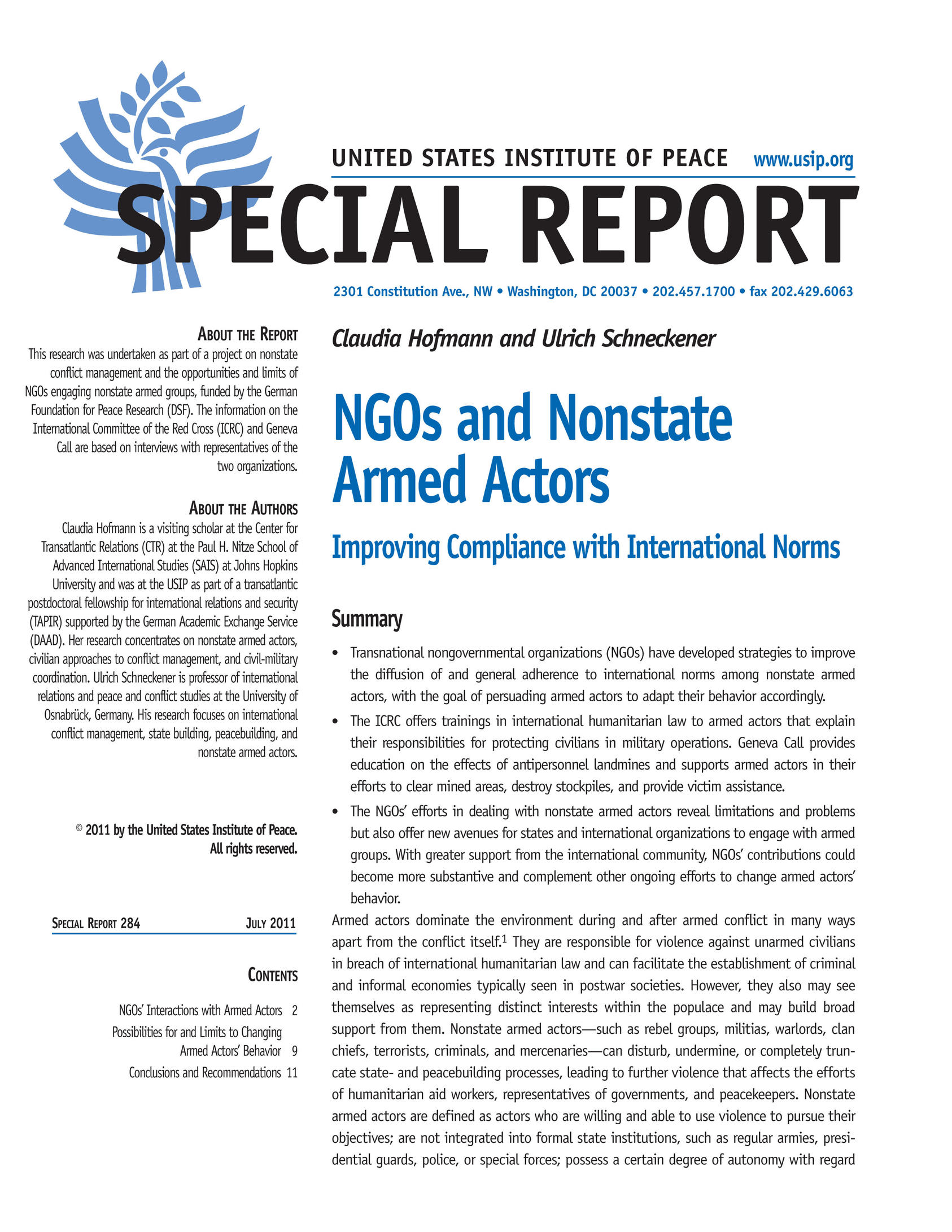NGOs and Nonstate Armed Actors
Two seasoned NGOs engage nonstate combatants on international human rights law to get them to change behaviors, from eliminating use of landmines to protecting civilians. Their work can inform and complement other attempts at engagement.

Summary
- Transnational nongovernmental organizations (NGOs) have developed strategies to improve the diffusion of and general adherence to international norms among nonstate armed actors, with the goal of persuading armed actors to adapt their behavior accordingly.
- The ICRC offers trainings in international humanitarian law to armed actors that explain their responsibilities for protecting civilians in military operations. Geneva Call provides education on the effects of antipersonnel landmines and supports armed actors in their efforts to clear mined areas, destroy stockpiles, and provide victim assistance.
- The NGOs’ efforts in dealing with nonstate armed actors reveal limitations and problems but also offer new avenues for states and international organizations to engage with armed groups. With greater support from the international community, NGOs’ contributions could become more substantive and complement other ongoing efforts to change armed actors’ behavior.
About the Report
This research was undertaken as part of a project on nonstate conflict management and the opportunities and limits of NGOs engaging nonstate armed groups, funded by the German Foundation for Peace Research (DSF). The information on the International Committee of the Red Cross (ICRC) and Geneva Call are based on interviews with representatives of the two organizations.
About the Authors
Claudia Hofmann is a visiting scholar at the Center for Transatlantic Relations (CTR) at the Paul H. Nitze School of Advanced International Studies (SAIS) at Johns Hopkins University and was at the USIP as part of a transatlantic postdoctoral fellowship for international relations and security (TAPIR) supported by the German Academic Exchange Service (DAAD). Her research concentrates on nonstate armed actors, civilian approaches to conflict management, and civil-military coordination. Ulrich Schneckener is professor of international relations and peace and conflict studies at the University of Osnabrück, Germany. His research focuses on international conflict management, state building, peacebuilding, and nonstate armed actors.



